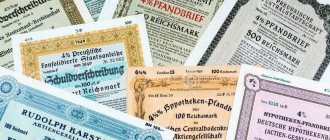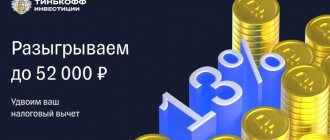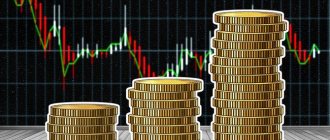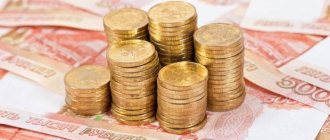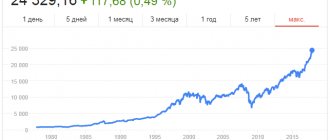Investments
21.08.2020
23097
Author: Igor Smirnov
Photo: pixabay.com
The stock market is a place where stocks, bonds and various types of financial instruments are sold. Now stock markets operate mostly in an electronic, virtual format. There are large halls with scoreboards and noisy brokers, but this is rather a “fading nature”.
Last news:
I want to trade Tesla and Apple shares: how to do this in Belarus?
Attracted the most investments in 2022: top 7 Belarusian startups
Securities trading is highly globalized. Thus, the American stock market trades not only the assets of US companies, but shares, bonds, obligations and contracts of almost all international corporations. The same is true for the London, Tokyo and some other world exchanges.
Stock markets are either exchange-traded or non-exchange.
- Exchange markets are a set of transactions within exchanges and according to exchange rules. The exchanges employ accredited professional participants.
- The over-the-counter stock market does not have a clear structure, is less transparent, less controlled, but in many ways repeats exchange trading.
Almost all transactions in the over-the-counter stock market are also carried out by professionals with special permits and qualifications.
There is no free stock market where everyone can work. And it is hardly possible, because... the main object of bidding is not the actual product, but financial rights and obligations, which must be recorded and controlled by some independent third party.
Definition and participants
The stock market, in simple terms, is a place where buyers and sellers of securities meet. Just like in a regular market, the laws of competition, supply and demand apply there. On their basis, the market price for goods sold is established, and capital is redistributed between participants.
What is sold and bought:
- Shares are equity securities that allow its owner to count on a part of the issuing enterprise’s profit based on the results of work in the reporting period (quarter, half-year, year), a share in the division of property in the event of liquidation, and, under certain conditions, the right to participate in management.
- Bonds are debt securities for which the owner gives a loan to the issuing company. Like any debt, bond debt must be repaid on time and with the payment of income (coupons) to the security holder for the use of his money.
- Derivatives – futures, options, forward contracts, etc.
- Other instruments – depository receipts, investment units of mutual funds, ETFs.
Sometimes the stock market is also called the securities market (SS). But not everyone agrees with this statement. Some experts believe that securities market is a broader concept that includes all operations (issue, circulation and withdrawal) with securities on the exchange and over-the-counter markets. And the stock market is an organized market that operates within the exchange according to strict laws and rules, under the control of regulatory authorities.
I don't know who is right and who is wrong. Let's leave the decision to economic theorists. But the main link in the market we are analyzing is definitely the stock exchange. We will look at the principles of its operation a little later in more detail.
Complete information about current strategies that have already brought millions of passive income to investors
The main participants in the market structure will be:
- Sellers or issuers are enterprises and organizations that issue securities to the market. The issuer can also be a state that issues, for example, OFZ (federal loan bonds).
- Buyers – private investors, traders, companies, government.
- Intermediaries are organizations that help sellers and buyers meet: brokers, management companies.
- Companies that organize and service the market - exchange, depository, market maker, clearing company.
- Controlling authorities – in Russia this is the Central Bank.
We will discuss how some of the above organizations work in the following sections of the article.
Regulatory Authorities
In order to streamline the activities of all market entities, the system must be monitored, namely:
- register issuers and issued assets;
- license intermediaries;
- ensure completeness and truthfulness of information about participants;
- maintain law and order.
Typically, functions are performed at two levels:
- State - for example, in Russia this is the Federal Service for Financial Markets (FSFM), the Ministry of Finance and the Central Bank;
- Self-regulation – National Association of Stock Market Participants (NAUFOR).
Functions of the Federal Financial Markets Service - the stock market regulator in the Russian Federation
The participation shares of controlling bodies may be distributed in different ways.
For example, in the UK, regulation is mainly carried out by market participants themselves, but in Russia, on the contrary, almost everything is controlled by the state.
Types and functions
Let's consider what types of securities markets are of interest to private investors.
- By the nature of the placement of securities.
Primary is the market on which the issuer places newly issued securities. He can do this in an open, in other words, public form (IPO) or closed, in which access to the purchase is limited to most investors. It turns out that in the primary investor buys shares (bonds) directly from the issuer, whose main goal is to earn as much money as possible from the placement.
Secondary is the mass and most popular market where securities that have undergone primary placement are traded. An unlimited number of investors have access to it, and the main place of trading is the stock exchange. Unlike the first option, an investor buys shares (bonds) from another investor. The price in this case constantly fluctuates depending on supply and demand. Psychology has a great influence, when rash deals are often concluded based on emotions.
More than 100 cool lessons, tests and exercises for brain development
Start developing
There is also an over-the-counter market where securities are sold that are not listed on the stock exchange (listing) and are not registered on it. Risky operations for risky people.
And the fourth option is trading large blocks of securities between large investors. There is no access for private individuals.
- By territorial basis: international, national, regional.
- By issuer: market for government securities and private ones.
- By type of securities: stock market, bonds, derivatives, etc.
The basis of how a market works is the functions or tasks it performs. There are the main ones:
- Brings together the interests of sellers and buyers. Some want to get money for their development, others dream of earning money to achieve their financial goals. And the state is not the last participant in this process. Through the privatization of enterprises and the issuance of federal loan bonds, it replenishes the state budget and solves global problems of the national economy.
- Redistributes capital. Money constantly flows from one industry to another, from one investor to another.
- It is an indicator of the country's economy. It’s not for nothing that we see stock indices running across all news programs. When they drop sharply, even people who have never invested on the stock market begin to worry. Is everything okay in the economy? Or is this another crisis?
If you look closely, the listed functions are no different from the functions performed, for example, by a regular food market. Only our citizens go there much more often than to the stock market. According to statistics, in Russia the share of private investors is only 0.7% of the total population, in the USA - 39.8%.
Advice for novice investors
It is recommended for a novice investor:
- Do not completely trust the forecasts of analysts and the media. No one can give an accurate forecast of price changes. The media often become participants in various conspiracies and spread false information.
Diversify. This term refers to the purchase of various types of assets - real estate shares, bonds, precious metals.- Set a goal for yourself. Before starting trading, the investor determines how much he wants to earn. He also decides whether trading will become a passive, main or additional source of income. In the first case, you should entrust money management to a trusted broker. In the second and third, the investor is recommended to obtain the necessary knowledge and make transactions independently.
How does the stock exchange work?
The article has already mentioned more than once one of the main participants in the stock market - the stock exchange. Film footage of a crowd of distraught brokers shouting something on the phone and to each other, trying to buy at a higher price and sell at a lower price, has long gone into history. Now passions may be boiling no less, but this is happening within the walls of offices behind monitors.
Let's review Russian platforms: Moscow and St. Petersburg exchanges. Private investors can access them through a broker.
Moscow Exchange
The new history of the exchange began in 2011, when the MICEX merged with the RTS. It was called the “Moscow Exchange”. Today it is the largest holding, which includes several markets: stock, derivatives, foreign exchange, money, commodity, investment and innovation, and several more.
We are interested in the stock market. Let's look at how it works. Includes two markets:
- Market of shares and shares (Russian and foreign shares, shares of investment mutual funds, ETFs, depositary receipts).
- Debt (all types of bonds denominated in rubles and foreign currencies, Eurobonds).
Trading takes place using several modes. Investors need to know this in order to understand at what point they will truly become shareholders or bond owners, whether they will receive dividends when the money from the sale of securities arrives in their account.
Modes:
- T+2. Used when trading stocks, shares and bonds denominated in US dollars. Means that settlements and recording of new owners of securities will be on the second business day after the actual transaction on the exchange. For example, you bought a stock on November 20 (Wednesday). A post about this will appear on Friday, November 22nd. The money will also be credited to the seller’s account on November 22.
- T+1. Used for OFZ. Payments and delivery of bonds occur the next day after purchase and sale.
- T0. Regime for corporate and municipal bonds, Eurobonds issued by the Russian Ministry of Finance, and Eurobonds in foreign currencies other than the dollar. All settlements are carried out on the day of the transaction.
The structure of the Moscow Exchange consists of:
- the organizer of trading - the exchange itself;
- central counterparty (National Clearing Center) - an intermediary between the parties to a transaction, who ensures its security and stores money in its accounts;
- National Settlement Depository (NSD), which maintains records of securities.
Trading mechanism:
- The trading session opens from 10:00 to 18:40. An auction takes place 10 minutes before the start, at which the opening price for each security is set based on supply and demand. At the end of the working day, another auction is held, at which the closing price is set. This is done in order to prevent price manipulation.
- In order to buy a security, an investor submits an application to his broker to complete a transaction at the market or limit price. Market is the price that has been established at a given point in time. You determine the limit yourself. For example, you want to buy cheaper and sell at a higher price than the current market price. If during the trading session no sellers (buyers) were found for your limit order, then it will be canceled by the end of the day.
- Trading may stop for a while or until the end of the session if the market is in panic and prices begin to change at a frantic pace. This can happen either for a single security or for all of them at once.
St. Petersburg Stock Exchange
On the St. Petersburg Exchange, since 2014, every investor can buy shares of foreign companies included in the S&P 500 index. For example, Apple, Amazon, Facebook, etc. Not all Russian brokers provide access to this exchange, so you need to check in advance when opening an account. Every year more and more new companies are added, the shares of which become more accessible to Russian investors.
Unfortunately, such an interesting instrument as ETF is available only on the Moscow Exchange and then only from the companies FinEx and ITI. Foreign exchange-traded funds are not represented. On the St. Petersburg Exchange, qualified investors have access to foreign ETFs. Many individuals are waiting for this state of affairs to change, and we will be able to choose from a variety of attractive index funds and diversify our portfolio.
Opening hours: from 10:00 to 01:45. This schedule is due to the need to synchronize trading in Russia and the American market. The “T+2” mode is used. The trading mechanism is similar to the Moscow Exchange.
A broker acts as a tax agent when buying and selling securities on the stock exchange, i.e. you do not have to worry about filling out declarations and transferring personal income tax. But there is one caveat when trading foreign securities. The investor is required to pay income tax in both the US and Russia. The US withholds 30% from dividends. In order for a Russian to pay his usual 13%, he must sign a special document - Form W-8BEN. It gives the right to give America only 10%, and Russia the remaining 3%.
What are blue chips
Blue chips are recognized as the most stable companies that are guaranteed to pay their investors money, have enormous stability and, as a result, low risks and low returns. Blue chips are the basis for conservative investing.
In Russia, the blue chips are raw materials companies, Sberbank, VTB, Moscow Exchange and other large companies. They have been more stable over the past few years, are guaranteed to bring money to investors and annually attract additional funds through additional issuance of shares and bonds.
Functions of the depository
Let's briefly look at the functions of the depository. The most important thing is protective. An investor can be calm when his broker, for example, goes bankrupt or his license is taken away. He will simply transfer his securities to another broker.
Information that you own specific securities and in the specified quantity is stored in the depository. He regularly sends an encrypted report on completed sales and purchase transactions.
Functions:
- registration of the right to own securities;
- storage of information about the owner of the assets;
- related functions, for example, tax and investment consulting, market analysis, etc.
Clearing center functions
Another organization servicing trading is the clearing center. He controls payments between sellers and buyers. This can be represented step by step as follows:
- Concluding transactions on the exchange and tracking them by the clearing company.
- Checking the terms of transactions.
- Determining who owes whom and how much.
- Carrying out mutual settlements between the seller and the buyer.
On the stock exchange, this is an intermediary who guarantees that the buyer will receive securities and the seller will receive money. He takes all the risks. The main calculations are carried out at the end of the trading session.
The main mistakes of novice investors
Common beginner mistakes include:
- High expectations. Beginners consider trading on the stock exchange as a source of consistently high earnings. However, in the first months of work you need to be prepared for losses.
- Investing all savings in stock trading. This is what people do who dream of getting rich in a short time. However, in pursuit of big profits, they lose their existing savings.
- Investing in the assets of one company. Beginners tend to invest only in blue chips. However, any company can go bankrupt.
The main mistake of a novice investor is the lack of knowledge about the functioning of trading platforms. Even if the client has entrusted his funds to the broker, it is necessary to take a short course on making transactions for a beginner. This will help you avoid being misled.
How to trade the stock market
Let's look at the stages of trading on the stock market:
- Choosing a broker and opening a brokerage account. At this stage, you need to clarify which exchanges you will have access to and whether all the securities you want can be purchased. Pay attention to the entry threshold and fees. And don’t forget that Russian investors have a unique opportunity to reduce taxes and take advantage of special benefits. To do this, you need to open an IIS. There can be as many brokerage accounts as you like, but there is only one IIS.
- Refill. All major brokers provide the opportunity to deposit money through a bank account using the details or using a bank card.
- Installation of trading platforms. These can be professional platforms such as QUIK or brokers’ own developments in the form of applications for computers and smartphones, for example, “VTB My Investments”, FinamTrade, etc.
- Carrying out trading operations. If you doubt that you will independently understand the technology of buying and selling securities, take training. Brokers have free video tutorials on how to use the trading platform. I opened accounts with two brokers with zero knowledge of how and what works there. But I easily figured out the interface. Brokers try to make applications intuitive for all users.
At first, it will be interesting for you to log into your portfolio every day and watch the dynamics. But with long-term investing, this is a thankless and sometimes even harmful task. You can do emotional things. Therefore, I log into my personal account only when I make a purchase or sale of securities. And I always remember that my horizon is at least 10 years.

